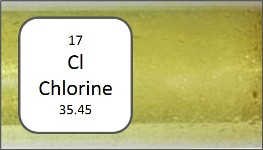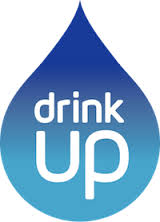
Health
Water2Drink Blog > HealthIs Chlorine Good for Your Health?Wednesday, June 18, 2014 - Posted by Water2Drink, in Health, Water Safety
The
answer is both yes and no. There is little doubt that adding chlorine to public
drinking water supplies to serve as an affordable disinfectant has had the very
positive health effect of eliminating a host of water-borne diseases such as
cholera. Many people who have become accustomed to drinking tap water even
associate the smell of chlorine in their water with it being “safe” to drink.
The fact is that chlorine offers health benefits right up to the point where
you ingest it. But what then? The
chlorine in treated water is essentially bleach, and it’s unlikely that most
people would consider drinking bleach to be good for their health. Medical
studies have linked chlorine consumption and associated chlorine byproducts to
cancer, heart trouble, premature senility, hardening of the arteries, and a
host of other ills. And while the U.S. Environmental Protection Agency has
established “safe” levels of chlorine in drinking water supplies, most rational
people would prefer to consume none of it. So, what’s the answer?
Rather
than expect any governmental agency to intervene and change your water
treatment process in the near term, individuals can take matters into their own
hands and simply begin filtering their drinking water at the point of use.
Chlorine is fairly easy to filter out, while at the same time a variety of
other potential contaminants that may be present (e.g., cryptosporidium,
giardia, MTBE, lead, mercury, arsenic, asbestos, etc.) will be eliminated or
significantly reduced as well. The simplest and most cost-effective solution is
to filter water through a high quality compressed carbon block filter.
Would
you like to see a demonstration of how such a filter effectively strips
chlorine out of tap water?
Then
click on the link below to see a short 1-minute video on YouTube.com. Most swimming
pool owners are familiar with a chemical solution called OTO that is used to
test the concentration of chlorine in pool water – the darker the water color
after adding OTO, the more chlorine is present. The video shows a simple OTO
test of tap water and a comparison to water drawn from the same source but
pushed through a compressed carbon block drinking water filter.
|
 0 Comments 0 CommentsTweet |
Breast Cancer and YouFriday, May 23, 2014 - Posted by Water2Drink, in Health, Water News
In our modern world, we are surrounded by chemicals and
substances that are commonly used in everyday life. Unfortunately, many common
chemicals we encounter have been found to be carcinogenic and are linked to
cancer, specifically breast cancer. A new study published in the Environmental Health
Perspectives peer-reviewed journal identifies 17 groups of #chemicals that are linked
to breast cancer. These include benzene
and butadiene (found in vehicle exhaust, tobacco smoke, or charred food),
methylene chloride (found in cleaning solvents), flame retardants (found in
treated furniture or rugs), stain-resistant textiles (found in furniture
upholstery), and disinfection byproducts (found in drinking water). Silent Spring, an organization dedicated to identifying and
breaking the links between environmental chemicals and #breastcancer, provides a
list of seven tips you can follow to reduce or eliminate your exposure to
breast carcinogens. #SilentSpring
believes that while science is still discovering how these chemicals affect our
health and our lives, these tips provide actions you can take to begin reducing
your exposure now. #Water2Drink is in full alignment with Multipure’s core
belief of better water for better health. For over forty years, Multipure has produced
the best water filters and water treatment devices in the market. Their solid carbon block technology is
independently tested and certified by #NSF International, and are proven to
reduce many contaminants listed in this study and much more. You can view the Performance Data Sheets that
list the certified reduction of contaminants for all of our products on our
website. A
Multipure solid carbon block Drinking Water System can really make a difference
in the life and health of you and your loved ones. Please contact Water2Drink.com if you have
questions regarding which filter is right for you! |
 0 Comments 0 CommentsTweet |
Pamper Your PlantsFriday, April 25, 2014 - Posted by Water2Drink, in Health, Products
Spring is here, and #gardencenters are filled with tender
new plants waiting to come home with you.
Why not give them the very best, just like the other members of your
family? The Multipure Aquagrow Garden Water Filter is a declorinator
that brings many benefits to your garden.
By reducing the toxic effects of chlorine in your garden, it can return
the natural balance of your soil, compost or mulch by protecting the soil’s
beneficial bacteria. This promotes
healthy plant nutrition and growth. It
can protect beneficial insect life such as lacewings, #ladybugs, and beneficial
nematodes. It may also enhance the
benefits of non-chemical pest control methods.
The Aquagrow includes a 3-ft. hose saver that connects it to
the garden faucet and provides protection to the unit, allowing for an easy,
no-tools-required installation. |
 0 Comments 0 CommentsTweet |
New Findings about Arsenic and IntelligenceFriday, April 4, 2014 - Posted by Water2Drink, in Health, Water News
Arsenic, a naturally occurring, tasteless and odorless
metalloid, is recognized by most consumers to be a toxic carcinogen. Arsenic can exist in many inorganic and
organic compounds as well, and researchers and regulators agree that inorganic
arsenic is more of a risk than the organic forms prevalent in the diet. Recently, a study of 272 Maine
schoolchildren might reveal a breakthrough about whether arsenic exposure, even
at low levels, could also lead to reduced intelligence. This five year study conducted by scientists
from Columbia University and the University of New Hampshire showed that even
at low levels, arsenic in drinking water could correlate to as much as 5 or 6
lowered points on IQ tests. “It is the
first study to actually show a difference in IQ points in the U.S. based on
water arsenic levels,” says Prof. Gail Wasserman of Columbia University.
Laboratory testing is available to identify arsenic levels
in your water source. The first place to start would be with your local water
authority. You can also reference the Environmental
Working Group National Drinking Water Database, where you can type in your zip
code and learn more about your local water source.
Multipure Drinking Water Systems have been certified by NSF
International to reduce the widest range of contaminants of health concern.
Multipure’s Aquaperform (MP880) units have been certified by NSF International,
under Standard 53, to reduce Arsenic V.
For more facts about arsenic, click here to see more information on
Water2Drink.com. If you are not sure of
which system you may need, please contact us for assistance in selecting the
one that best suits your needs.
|
 0 Comments 0 CommentsTweet |
Multipure and 4-Methylcyclohexane MethanolTuesday, January 21, 2014 - Posted by Water2Drink, in Health, Water News, Water Safety People everywhere are stunned to learn about the recent water pollution disaster in West Virginia. How could this happen? We all know that accidents happen, but with better oversight they often could have been avoided. But what about the unfortunate citizens of West Virginia who were directly affected by the toxic spill of 4-Methylcyclohexane Methanol into their water supply? What now? Water2Drink's customers who are using or considering purchasing a Multipure Drinking Water Systems want to know if they can use their Multipure water filter to help address this extraordinary water contamination problem. When asked this question, Multipure's resident expert, Multipure VP of Technical Services, Andrew Fenwick, PhD, offered the following comments: "We do not specifically test for the reduction of 4-Methylcyclohexane Methanol. It is not an organic compound included by NSF VOC surrogate testing, nor is there a reduction standard/protocol included in NSF Standards 42 or 53. With that said, based on the chemical nature of 4-Methylcyclohexane Methanol and results of past VOC testing, I expect that these filters would be effective at reducing the concentration of 4-Methylcyclohexane Methanol in drinking water (along with innumerous other analogous organic contaminants). We are unable to quantify the reduction efficiency or longevity/lifetime, as these characteristics depend on the concentration of the compound in the influent water, the water chemistry (TOC, pH, TDS, etc.), and the compound’s unique reduction characteristics (i.e., its affinity for the filter media). "But please note that, more than usual for topics like this, and based on the context of the question, I strongly caution the use of carbon block filters based on 'the concentration of the compound in the influent water.' These filters are highly effective at reducing numerous organic contaminants, but typically these contaminants are present in ppb (ug/L) concentrations. Higher concentrations (high ppb to ppm; i.e., high ug/L to mg/L) or above potentially suffer two ill-effects: inadequate contact time (more contaminant needs more contact with the filter media) and inadequate capacity (with adsorption technology, there is a limit to the amount of active sites before the filters become saturated/exhausted). Without knowing the concentration (or range in concentrations), I would not recommend the use of these filters as the primary treatment method. After primary treatment/remediation has taken place, I think these filters are an excellent technology to ensure reduction of residual 4-Methylcyclohexane Methanol in the distribution system and provide cleaner water for the long term." For more information on the contaminant reduction capabilities of Multipure Drinking Water Systems, please visit https://www.water2drink.com/resource-center/how-it-works-multipure-water-contaminant-reduction.asp.
|
 0 Comments 0 CommentsTweet |
Leaded or Unleaded?Monday, November 18, 2013 - Posted by Water2Drink, in Health, Water Safety
That used to be the question at gasoline pumps up until the
1970’s. Leaded gasoline was phased out
about 1975. But since that time, lead
has continued to be identified in other products such as paint, canned food,
glazed ceramics, leaded crystal, mini-blinds, and imported food. With increased awareness of lead poisoning, most
of these products have been modified to reduce or eliminate lead. However, lead can still be found in drinking
water! According to information from the New York State Dept. of
Health, lead seldom occurs naturally in water supplies. Rather, it primarily enters the water system
as materials containing lead are corroded in the water distribution system, and
also by the use of lead-based solder within plumbing products. (You can read the detailed NY State Health
Dept. information regarding sources of lead by clicking here.) It has long been recommended to avoid ingesting lead to avoid
lead poisoning. Children in particular are most commonly affected by lead
poisoning, but you do continue to accumulate lead in your body as an adult unless
you actively avoid lead exposure. One
way to do this is to use a water filtration system that is NSF-certified for
lead reduction. All Multipure Drinking Water
Filtration Systems are certified for lead reduction as well as other contaminants,
such as mercury and VOC’s (volatile organic compounds). Do your research and verify that your water
filtration system is NSF-certified!
You can find Multipure’s complete line of certified water
filtration systems at www.Water2Drink.com. Insist on “unleaded” – fresh, filtered water
for yourself and your loved ones! |
 0 Comments 0 CommentsTweet |
Have You Heard About the “Drink Up” Campaign?Monday, September 23, 2013 - Posted by Water2Drink, in Health, Water News
Beyond the scope of the Affordable Health Care Act, and
whether or not you take part in the American political process, your good health
is of interest to our highest elected leaders. Recently, First Lady Michelle Obama joined the Partnership
for a Healthier America (PHA) to encourage all Americans to lead healthier
lives by choosing to drink more water.
By increasing your water intake by just one glass a day, you will
improve “your health, your energy, and the way you feel,” says Mrs. Obama. The PHA will place the Drink Up logo on bottled water, reusable bottles, and public taps in the next few years. Look for the logo! You can find more information on the “You Are What You Drink” campaign here: http://ahealthieramerica.org/our-partners/you-are-what-you-drink/. It’s as easy as one more glass of Multipure filtered
water. Drink Up! #DrinkUp, #FirstLady, #MichelleObama, #PHA, #Multipure,
#Water2Drink
|
 0 Comments 0 CommentsTweet |
Hydration and Health – Why Care?Monday, September 9, 2013 - Posted by Water2Drink, in HealthHave you ever wondered why your trainer, exercise instructor, or physician reminds you incessantly to “drink more water!” after a workout or physical activity? It’s not just to replace the fluids that are used during the activity. It’s also to prevent loss of endurance, combat increased fatigue, prevent disruptions in cognition, and minimize other physiological effects of dehydration. If left to hydrate according to thirst, many individuals may
not adequately intake enough fluids to offset the deficit of a workout. Mild to moderate dehydration may persist for
hours after the activity or workout is finished. It’s recommended that athletic activity begins
from a well hydrated state, and that the individual continues to drink fluids
above and beyond thirst recognition. Water2Drink.com recommends you read a National Institutes of Health article titled “Water, Hydration and Health,” which gives specifics on this topic, in addition to many others regarding proper hydration. The whole article is interesting, but specifically see Section II, Physiological Effects of Dehydration.
You can find the NIH article at |
 0 Comments 0 CommentsTweet |
Reasons to Drink More WaterMonday, July 22, 2013 - Posted by Water2Drink, in Health
Can you think of 5 good reasons to drink more water?
Fresh, clean drinking water is essential to life. It sounds intuitive, but many people are chronically dehydrated. And most people are not aware of all the things water can do to promote good health. A recent article published by ABC News highlighted important reasons to drink more water in "5 Health Reasons to Stay Hydrated." For more information an health and water, visit Water2Drink.com's Health Information section.
|
 0 Comments 0 CommentsTweet |




